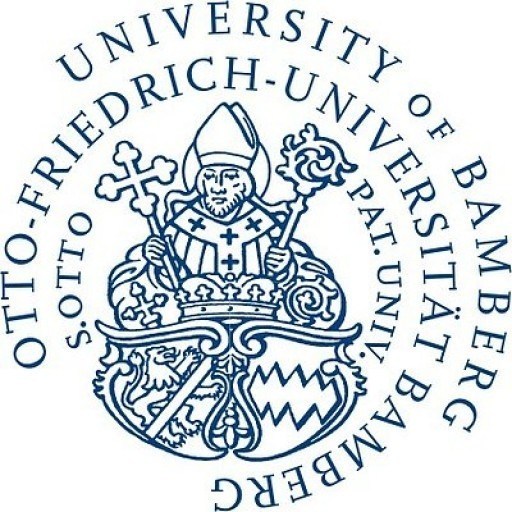European Economic Studies (EES) at the University of Bamberg offers an interdisciplinary and comprehensive education in the field of economics, focusing on the European context. The program aims to equip students with a solid foundation in economic theory, quantitative methods, and practical skills necessary for understanding and analyzing economic phenomena at both national and international levels. Students will explore topics such as economic policy, European integration, global markets, and development economics, gaining insights into how economic systems function within the complex political and social landscape of Europe. The curriculum integrates core principles of microeconomics, macroeconomics, and econometrics, complemented by specialized courses in European economic policy, international trade, and financial markets. The program emphasizes critical thinking, analytical skills, and the ability to interpret economic data, preparing graduates for careers in public administration, international organizations, consulting, or further academic research. Teaching methods include lectures, seminars, case studies, and project work, fostering independent learning and practical problem-solving abilities. Throughout the course of study, students will benefit from close interaction with faculty members who are active researchers in the field, offering valuable insights into current economic issues and policy debates. The program also provides opportunities for international exchange and internships, enhancing students' global perspective and professional networks. Graduates of the European Economic Studies program will be well-prepared to contribute to economic policy-making, business decision-making, or pursue advanced studies in economics or related disciplines. Commitment to academic excellence and practical relevance makes this program an ideal choice for students aspiring to engage with the economic challenges and opportunities within Europe and beyond.
Educational organisation
The two-year Master's degree programme (120 ECTS) takes place entirely in Bamberg. Upon graduation, the Faculty for Social Sciences, Economics, and Business Administration of the University of Bamberg will award a Master of Science (MSc) degree in European Economic Studies (EES).Apart from the compulsory economics and methodological programme in the first semester (24 ECTS), the programme provides flexibility regarding content and organisation of studies. The economics modules (36-60 ECTS) offered are based in the fields of international economics, empirical microeconomics, public economics, economic policy, economic theory and applied economic research.
The individual academic profile can be supplemented by classes in related economics and social science disciplines (business administration, political sciences, social sciences, law) or courses taken during an optional semester abroad (up to 24 ECTS). This supports the interdisciplinary aspect and extends the chosen area of the main focus, thereby making good use of the large potential of the curriculum available at the Faculty for Social Sciences, Economics, and Business Administration at the University of Bamberg.
Up to two foreign languages (12 ECTS each) relevant for the exams form another essential component of the Master's degree programme.
The Master's thesis (24 ECTS) has to be written over the course of five months at the end of the programme.
For further information, please see: http://www.uni-bamberg.de/ma-ees/.
Study abroad unit(s)
Possible, but not obligatoryInternships
NoneForms of assessment
Written exams after lecture periods/semesters, seminar papers, written and oral exams in the foreign languages, Master's thesis during/at the end of the programmeCourse objectives
The European Economic Studies (EES) programme prepares students for the requirements of the professional world which result from globalisation and the European integration process. The programme focuses on economic topics. In addition, the course of studies includes foreign languages and the possibility of integrating courses from a series of related academic disciplines into the curriculum, according to individual preferences.The Master's degree programme aims at conveying the required professional knowledge, skills and methods needed to take up an economics-related profession in an academically well-founded and reasonable manner. Thus the programme enables students to classify academic findings critically and to assume responsibility. In addition, the intention of the programme is to find and support the next academic generation.
Language requirements
As courses are partly taught in German, applicants whose native tongue is not German need to certify their command of the German language through the "Deutsche Sprachprüfung für den Hochschulzugang ausländischer Studienbewerber (DSH)" (German language test for the university admission of foreign students). Alternatively, they can certify their command of the German language through the following:- A DSH certificate awarded by a "Studienkolleg" or another university
- "Deutsches Sprachdiplom der Kultusministerkonferenz Stufe II"
- The certificate of the "Zentrale Oberstufenprüfung (ZOP)" of the Goethe Institute
- The certificate "Kleines Deutsches Sprachdiplom" or "Großes Deutsches Sprachdiplom" of the Goethe Institute
- A TestDaF with level 4 in all parts
Required DSH / TestDaF
YesAcademic requirements
Bachelor's degree in European Economic Studies (EES) or a comparable degree in economic, social or natural sciences or mathematics with a grade of at least 2.5 (German grading system). For more information regarding admission, please see:https://www.uni-bamberg.de/ma-ees/zulassung/









